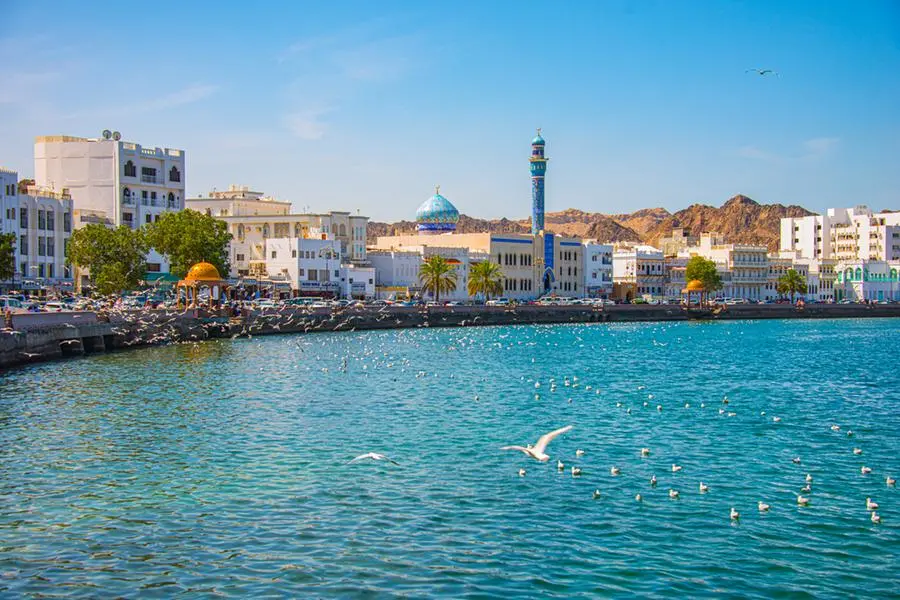PHOTO
Small and medium-sized enterprises (SMEs) in Oman are leveraging social media to boost visibility, attract customers, and develop their businesses. Influencer marketing, which involves famous personalities such as Messi, Ronaldo, and Beyoncé, is gaining popularity. These partnerships offer brand recognition and revenue but come with costs. The nano-influencer, a new type of influencer, has emerged as a solution to the high costs associated with famous influencers, making SMEs affordable to partner with them. The influencer marketing market is valued at $24 billion as of 2024, up 13.7% from its 2023 estimation of $21.1 billion.
Nano influencers, who have fewer followers anywhere between 500 and 5000, are growing in popularity because of their capacity to establish personal connections with their followers and offer a relatable method of brand promotion. Their impact on consumer choices is substantial, and, in some cases, they have even higher engagement rates than celebrities or mega-influencers. Anyone with more than one million followers in their influencer network is regarded as a mega-influencer.
There are several reasons SMEs in Oman must associate with nano-influencers. The first of these is affordability. Nano-influencers are more affordable than mega-influencers and celebrities. Owing to their affordability, SMEs can collaborate with multiple nano-influencers to promote their businesses, rather than paying a mega-influencer a hefty fee. Finding a spot for a business in this competitive arena is made possible through nano-influencer partnerships.
The second is effective engagement: nano-influencers have a more significant influence despite having less reach due to their smaller following size and pre-existing trust in their followers. They have more time to respond to their followers, allowing them to connect better with their followers.
However, this kind of engagement is unthinkable with mega-influencers, as they are beyond the reach of their followers, and their sense of loyalty and confidence in fostering their personal touch is slim. SMEs are more likely to follow influencers who align with their products or services, allowing easier campaign reach and targeted client engagement.
Third, trust: SMEs may increase the credibility of their brand and draw customers to their products or services by working with nano-influencers as they leverage trust with their audience. For example, followers view a nano-influencer's endorsement of a product or service as a sincere suggestion rather than an advertisement. Owing to their previous experience and positive interactions, when nano-influencers suggest something, followers tend to take advice on a positive note.
Fourth, accessibility: generally, mega-influencers tend to favour larger businesses over SMEs. However, nano-influencers are eager to advocate for small companies and their products and services. Additionally, nano-influencers are consistently available and keen to collaborate and expand their services for SMEs. In addition, they provide high-quality services and offer regular updates on SMEs to their followers, not just one-off promotions.
For instance, one of the Omani nano-influencers is based in the Al Batinah South region with 4,300 followers.
He frequently travels both inside and outside of Oman and shares an array of photos and videos of tourist locations, places to stay, dining establishments, and shopping. Following his posts, followers generally enquired about places, cuisine, costs, quality, and overall experience.
Based on his recommendations, some of his followers ordered cakes in Layali Cakes, perfumes in Atyab Al-Sheekh, and food ordered online in the Lahab Kitchen Restaurant. Similarly, another nano-influencer from Ad Dakhiliyah Governorate posted pictures and videos of tourist spots, food, and other shopping items on his Instagram page, mostly covering the Al Dhaklaya region.
Based on his suggestions, followers had coffee at Anat Café in Nizwa; purchased halwa from Al Gatheeb in Nizwa Souq; bought dates, nuts, and green tea from Al-Sharaa Mills in Bahla; honey from Manahel Al Sahtan; and traditional Omani men's dress and accessories from Hybit_3rees.
Finally, for SMEs, financial constraints are frequently at the top of the list.
Fortunately, many nano-influencers are willing to work with SMEs in return for very low fees. According to a recent survey, only 44% of nano-influencers prefer monetary incentives; the rest are happy to promote SMEs with small gifts or even the products or services of SMEs that they promote. Additionally, nano-influencers do not see their endorsements for SMEs as a means of earning money; instead, they see them as a pastime. They also believed that their followers would benefit from these endorsements.
Many SMEs in Oman are still getting used to managing their online presence. Fortunately, they have a strong ally on their side with only a small cost. Nano-influencers can undoubtedly assist SMEs in bridging the gap between the business and their clientele by creating captivating narratives that are essential for grabbing clients' attention. When effectively engaged, nano-influencers can be SMEs’ best friends in Oman.
SMEs are more likely to find an ideal influencer to collaborate with if the influencer is micro- or nano-sized. Additionally, nano-influencers are less demanding and more flexible to the needs.
2022 © All right reserved for Oman Establishment for Press, Publication and Advertising (OEPPA) Provided by SyndiGate Media Inc. (Syndigate.info).





















